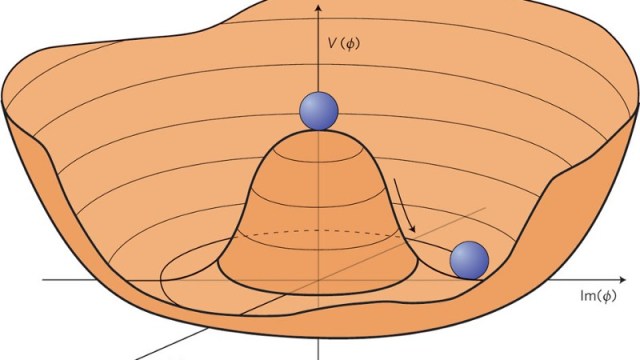Science is all about awe

If I asked you to picture a scientist, what would you see? A stern-faced individual in a white lab coat? Somebody displaying little emotion?
People tend to make assumptions about scientists, particularly about their personalities. They assume scientists to be logical, hyper-rational, and serious (Fiske, Cuddy, & Glick, 2007). Scientists are typically stereotyped as cold, lacking important interpersonal emotions like empathy or compassion. Recent research in psychology has even showed that people tend to associate scientists with immoral behavior—they perceive scientists as generally preferring the pursuit of knowledge over doing what is considered morally right (Rutjens & Heine, 2016).
I don’t think these stereotypes are accurate, and I think it’s actually damaging to think about scientists in this way. I want to replace those stereotypes with the idea of people who are capable of experiencing profound emotion. I want to think of scientists as people who find beauty in their work, who feel that understanding the natural world provides a source of meaning and order to the complexity of our lives.
The image of a scientist should be of a person full of awe, and rewriting this stereotype can positively change how we think of the relationship between science and religion.
Scientists have long described their most awe-inspiring experiences. Richard Dawkins, for example, wrote that it is “this feeling of spine-shivering, breath-catching awe—almost worship—this flooding of the chest with ecstatic wonder, that modern science can provide.” Albert Einstein wrote, “I maintain that the cosmic, religious feeling is the strongest and noblest motive for scientific research.” Many working scientists echo these sentiments, reporting that awe motivates them to understand the natural world, and that witnessing a beautiful scientific discovery can, in turn, be awe-inspiring in and of itself.
Still, some people might be surprised that scientists—particularly those who aren’t religious—would experience awe in the first place. Given that awe implies a sort of “reverence,” and that it tends to be evoked by something powerful—a dazzling sunset, the birth of a child, an impressive person or idea—it can be hard to imagine that “cold, calculating” scientist experiencing such an ethereal, and often spiritual, emotion.
Awe triggers what is known as a cognitive process of accommodation in which we need to revise what we know about the world to make sense of new information. Contemplating the enormity of the universe, for example, can feel somewhat daunting and destabilizing; it is near impossible to understand how small we are in comparison, and we must make sense of how something can be so impressively large. Scientists often encounter things they don’t understand; biologists, for example, are still making sense of the human genome, and cognitive scientists are struggling to understand how consciousness arises in the brain.
Scientists frequently encounter new data that contradicts existing theories, and have to revisit what they thought to be true. They try to understand and accommodate, and they tend to find that whatever they are studying—space, the brain, cells, whatever—to be awe-inspiring.
Seen this way, it is not so surprising that awe and science are so often related.
The effects of awe can be profound. When we experience awe, time and space feel more expansive, and people report feeling more connected to their surroundings (Rud, Vohs & Aaker, 2012). Awe can lead to feelings of spirituality and self-transcendence (Van Cappellen & Saroglou, 2012), a sense that you are incredibly small in the presence of something greater (Bai et al., 2017). Experiencing awe can even cause people to act more prosocially toward those around them (Piff et al., 2015).
A more accurate depiction
I think the common stereotype of scientists is inaccurate; they are not merely dispassionately dedicated to empiricism, but capable of—and frequently experiencing—this incredibly powerful emotion in connection with their work.
Some of my own research shows that people with a deep understanding of what science is, and how it works, tend to report experiencing awe on a more regular basis. These awe-prone individuals are also more likely to reject creationism in favor of evolution, and detect and reject commonly-made errors in scientific thinking (Gottlieb, Keltner & Lombrozo). It is important to note that we did not recruit professional scientists or religious individuals to participate in these studies; these findings came from studying a relatively average group of people. So we cannot say whether or not whether professional scientists are among the most awe-prone, or how a secular scientist would differ from a scientist of faith. Regardless, this research makes an important point: people with a commitment to science can also be frequent experiencers of awe.
More recent studies looked even deeper at the relationship between awe and science. One set of studies found that when everyday people find scientific information awe-inspiring, they report an increased belief in some kind of god or deity. In one experiment, people watched either a video about physicists marveling at the nature of subatomic particles or a video on the same subject matter but that lacked the element of awe. It is important to note that the two groups watched videos conveying the same information; however, for only the first group was the scientific information conveyed in a way that evoked awe. Despite the fact that thinking about science can decrease the degree to which one believes in god, people who watched the first video (as opposed to the second) were more likely to report believing in god as a mystical and abstract entity (Johnson et al., 2019). This study echoes what even “secular” scientists like Einstein have suggested for centuries: science can move us, and these feelings of awe are similar to those that people report during spiritually transformative experiences.
Most importantly, when we think of science as awe-inspiring—and, more importantly, of scientists as people who find awe in their everyday work—it seems that science and religion may be closer cousins than some might imagine. Both can be sources of powerful emotions, and a commitment to science is perfectly compatible with feelings of spirituality and transcendence.
Sara Gottlieb-Cohen is Manager of Statistical Support Services at Yale University’s Center for Science and Social Science Information.
The post Science Is All About Awe appeared first on ORBITER.





